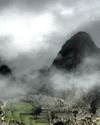
Ever been on the trail in one part of the country and felt you had everything you needed, only to bring that same trusty setup to a different region and feel woefully unprepared?
Maybe you’re used to hiking the Pacific Northwest, so you’re always stocked with extra socks for when the ceaseless drizzle puts your waterproof boots to the test. Maybe you skimp on carried water because you know the next stream is just around the bend. While extra socks usually aren’t a bad thing, that water strategy certainly won’t be adequate for the deserts of the Southwest. Each region requires a different plan of attack.
According to National Geographic, a biome is characterized by its vegetation, soil, climate, and wildlife. Though there are various sub-categories within America’s biomes, there are six main environments in which you will likely find yourself if you set out on a hike. The trail conditions of each environment will vary significantly, and each will require different gear. Here, we break down the best time to hike in each, as well as each biome’s unique hazards and advantages.
Unless you’re truly a rugged outdoors person, you will probably only want to hike the Alaskan tundra during the warmer months. The problem with that plan? Literal clouds of mosquitoes. SHELLEY WALES / ISTOCK PHOTO
DECIDUOUS FOREST Region: EAST & SOUTHEAST
This story is from the July 2022 edition of American Outdoor Guide.
Start your 7-day Magzter GOLD free trial to access thousands of curated premium stories, and 8,500+ magazines and newspapers.
Already a subscriber ? Sign In
This story is from the July 2022 edition of American Outdoor Guide.
Start your 7-day Magzter GOLD free trial to access thousands of curated premium stories, and 8,500+ magazines and newspapers.
Already a subscriber? Sign In

IT'S IN THE BAG
3 WAYS TO HANG A BEAR BAG

HOME DEFENSE
YOU DON'T NEED FANCY GEAR. RELY ON BASIC GUNS AND PROVEN DEFENSIVE MEASURES

GOT GAME?
5 REASONS YOU SHOULD ADD HUNTING TO YOUR SELF-RELIANCE PLAN

CONDOR IMPOSSIBLE MACHETE
THIS NOT-SOIMPOSSIBLE MAGHETE DELIVERS

CAN WE FIX IT? YES WE CAN
PUTTING TOGETHER AN EDC TOOL KIT THAT ACTUALLY WORKS

ON YOUR BEST BEHAVIOR
HOW TO AVOID CONFLICTS WITH LOCALS WHEN TRAVELING ABROAD

SPLURGE TOR SAVE?
A GUIDE TO WHICH CAMPING GEAR DESERVES YOUR HARD-EARNED CASH, AND WHICH GEAR TO SKIMP ON

HOLIDAY WISH LIST
LOOKING FOR GIFT IDEAS? WE HAVE YOU COVERED!

You Can Take It With You
Construct a support/ resupply kit that will keep you sharp and ready

City Survival
Nyerges "Urban survival guide" advocates living simply to be resilient against adversity